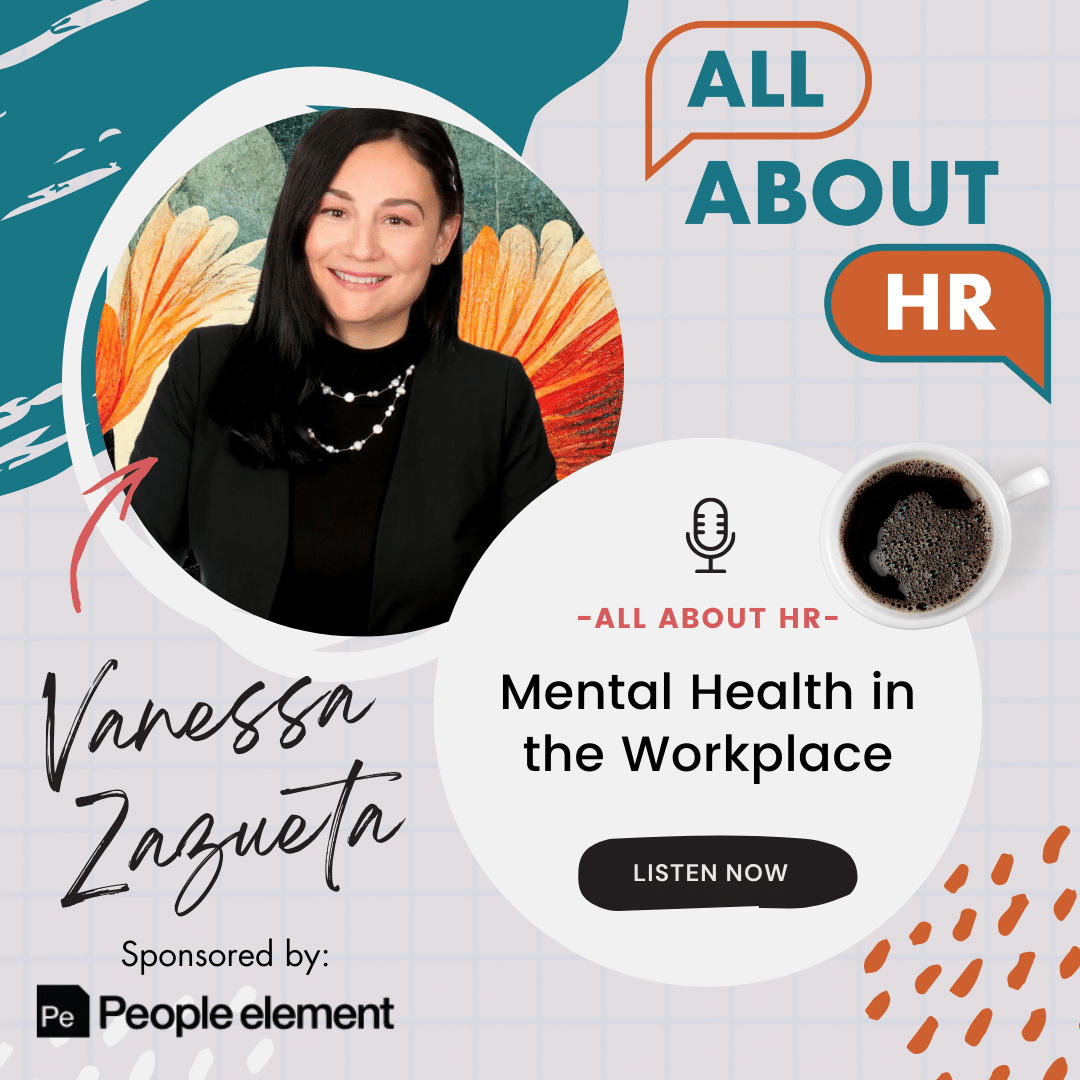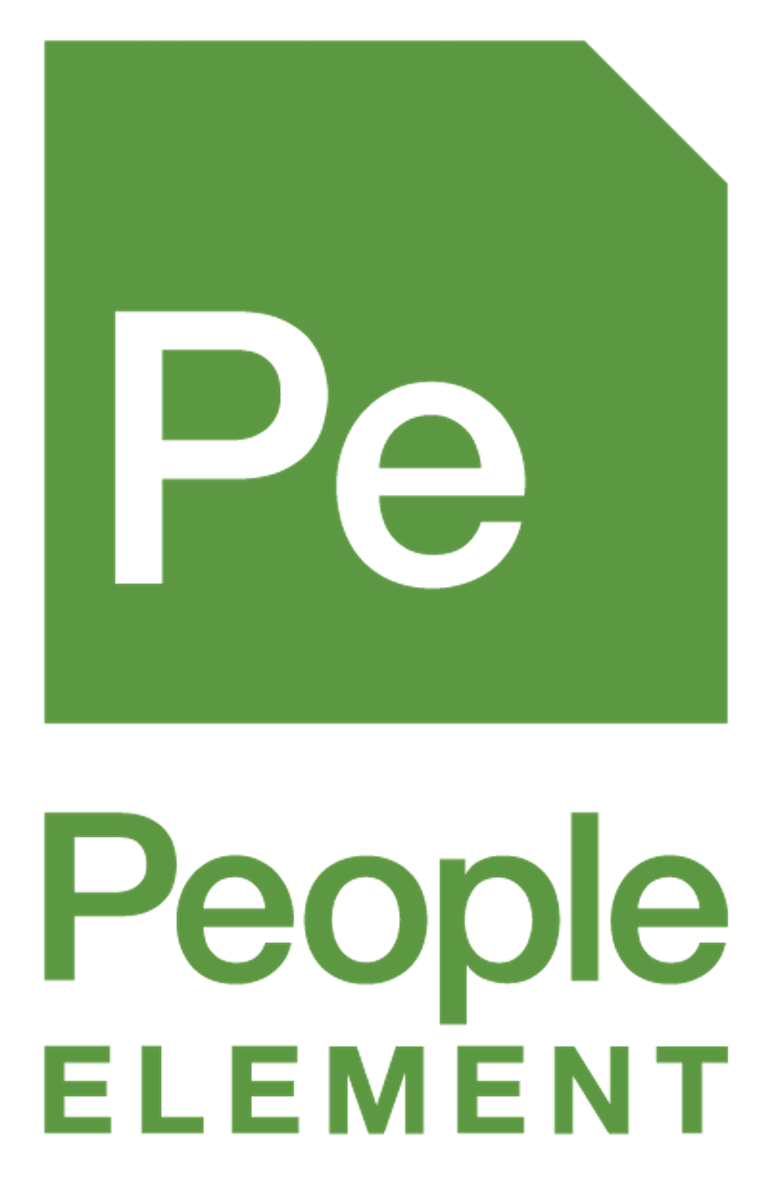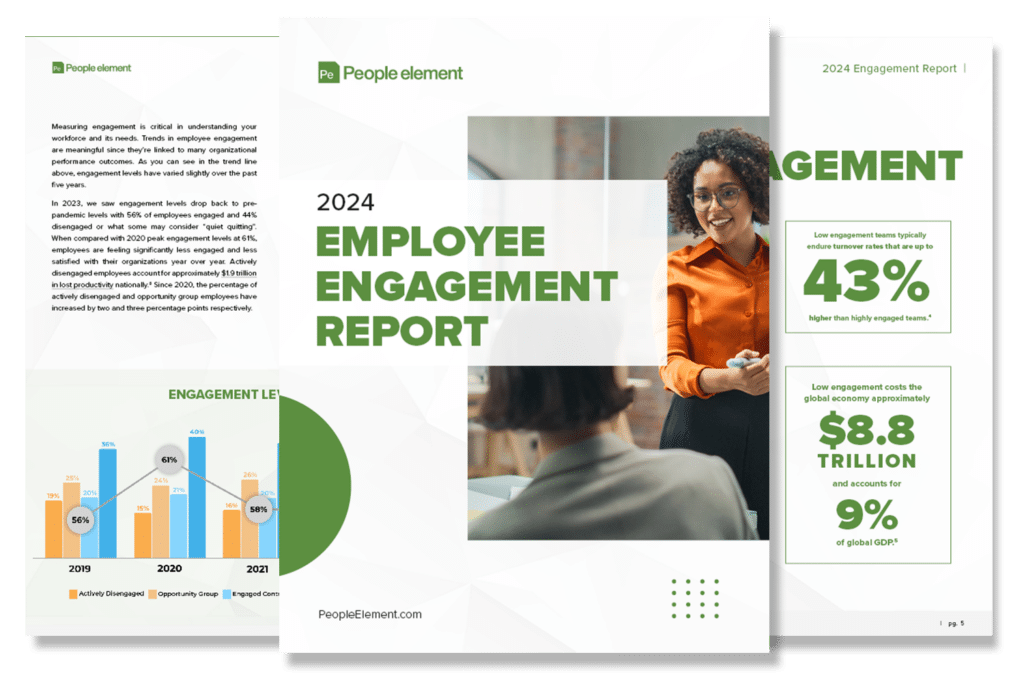
Vanessa Zazueta joins us to discuss how HR leaders can help employees thrive in their personal and professional lives by focusing on three wellbeing pillars: physical, mental, and financial health. As a director-level HR Generalist, Vanessa shares her experience launching successful wellness programs and fostering an open, inclusive work culture.
Vanessa also emphasizes the importance of navigating your own wellbeing journey — while also leading wellbeing initiatives for your team. Additionally, the conversation includes a fun anecdote about an office fish named Tugboat, which brought the team together and created a sense of community.
Noted in Podcast:
HR HOTSAUCE “Favorite song to bring you out of a funk playlist”:
What Vanessa is watching:
- How to Get Rich: Netflix – For practical advice on improving your financial wellbeing
Welcoming Vanessa Zazueta
Vanessa Zazueta is a distinguished HR Generalist at the director level, bringing over two decades of invaluable experience in the dynamic realm of the hospitality industry. Renowned for her unwavering commitment to fostering inclusive workplaces and nurturing talent, Vanessa has left an indelible mark on the organizations she has served.
Throughout her illustrious career, Vanessa has been a beacon of leadership, guiding companies towards excellence in employee satisfaction and diversity inclusion. Her dedication to nurturing talent and promoting diversity has earned her recognition on prestigious lists such as Fortune’s “Best Companies for Minorities” and “100 Best Companies to Work For,” as well as being hailed among the “Most Admired Companies in America.”
Vanessa’s passion for training and development has been the cornerstone of her success. She has led numerous training initiatives aimed at empowering employees at all levels, fostering a culture of continuous learning and growth. Her strategic approach to talent management has not only enhanced employee engagement but has also driven business success through the development of high-performing teams.
Episode Summary:
This new season of the All About HR podcast starts with a fresh new look and host. Laura Hundley, who has worked behind the scenes as a producer since the very first episode, has stepped into a new role as host. Laura’s first guest is Vanessa Zazueta, a seasoned HR professional in the hospitality industry. They start the episode on the topic of employee wellbeing and Vanessa defines a successful wellbeing program as one that looks at the person holistically and offers different topics and options to them to help them grow as a person, as an individual employee outside of work, inside of work, and overall in their life.
Three Pillars of Wellbeing
Vanessa goes on to share the three pillars she thinks are crucial to a program: physical wellbeing, mental wellbeing, and financial wellbeing. She details how in her experience it can be difficult to facilitate or create a wellbeing program when you yourself aren’t feeling your best. She talks about how she was facilitating a health wellness program but struggled with feeling like she wasn’t a good example. This experience kickstarted a health journey that led to her making her health a priority.
Laura and Vanessa switch gears to talk more about the mental wellbeing pillar. Vanessa states how important she thinks mental health is and how it can sometimes be overlooked. She describes how offerings and resources like counseling services, stress management workshops, mindfulness sessions, or yoga classes can be very impactful for team mental health.
Vanessa shares a memory of a particularly stressful time during the pandemic when her team was feeling stressed and overwhelmed. She talks about how one of their leaders stepped in and made them all take a few minutes to box breathe together. Box breathing is a technique that can help calm you down. It consists of focusing on your breathing in four second intervals. You start by breathing in for four seconds, holding that breath for four seconds, breathing out for four, holding and repeating this cycle consistently until you feel centered. After doing this technique together, they were given the rest of the day as a mental health day and instructed to rest, and take care of themselves. Vanessa remembers how meaningful this was and how gestures like this can make an impact.
Before moving on, they touch on the third pillar—financial wellbeing. They discuss how the financial pillar is oftentimes overlooked but is usually important to people. Focusing on creating resources around financial literacy can be helpful for employees, especially those early in their careers or wanting to learn more about things like investing.
She finishes this thought by stressing that the key piece is truly promoting a stigma free work environment where employees feel comfortable seeking help when needed and feel as though they’ll truly be listened to and given those resources.
Untruth in the Workplace
Laura takes Vanessa through the first HR Hot Sauce of the season, a quick segment where Laura asks fun rapid-fire questions. After this they talk through a few topics such as what changes Vanessa would like to see in the workplace this year and how to make mental health more accessible.
Laura asks Vanessa what she thinks is the biggest untruth in work today. Vanessa responds that she thinks its the notion that success and productivity are tied to the number of hours that you work rather than the quality of the output or the results you are achieving. She feels that this mindset can be unsustainable and perpetuate burnout for people.
Tugboat the Office Fish
They close out the episode with a fun story about a fish named Tugboat.
“I have a ridiculous story to share, but it brought people together. At one of the offices I worked in human resources we had organized an employee appreciation week. We had games and activities and food and all this. And our HR team were thinking, “What's something we've never done?” And somebody on the team said: “Let's get a fish. Let's get an HR fish.” So we got a little beta from the store and had a little contest to name the fish. And employees really got into it and everybody came by and put their suggested name on the list and my direct team then narrowed it down to three names that we liked because we were going to be, you know, the parents of our office fish.
We drew a name and their name was Tugboat. So Tugboat the Beta Fish was now our little mascot in human resources and it connected us to the people. They'd come in and say hi to Tugboat or see how this fish was doing. They all felt they were a part of this. And the person who named him or her Tugboat would come by for extra visits.
And it was ridiculous because we didn't think through this. We're a Monday through Friday office, so who's going to take care of this fish on the weekends? And so every Friday night, the last person to leave the office had to walk the tank over to our security office which was a 24 hour service.
So we shared custody of this fish with our security department. And we also didn't think who's going to go buy the food, or who's going to clean the tank every week. So we all took turns and it became a task. Tugboat lived for three years.”
Full Transcript
Welcome to all about HR, the podcast dedicated to unraveling the mysteries of human resources and empowering you with the knowledge. Aggregate the modern workplace successfully. I’m your host, Laura Hundley. And I’m thrilled to embark on this HR journey with you. Let’s go.
Welcome to All About HR, our first episode of 2024. I’m really excited to be taking over as host. Today I have a really amazing person to talk to; Vanessa Zazueta. She is an HR professional who has been in the hospitality industry for over 20 years. Welcome, Vanessa. Thank you for joining us. I’m really excited to talk to you, learn more about what you do, and hear some of the experiences that you’ve had.
Vanessa
Would be my pleasure, absolutely.
Laura
I know you’re an HR professional, so you’ve probably seen quite a bit in your time. So maybe I’ll start with what would you like to share or start off with today?
Vanessa
Well right now I have a big focus and interest in employee wellness and overall wellness. And I think that’s a good topic to start on. I chose a profession in the hospitality industry. So being of service to others, whether it’s a guest or an employee.
And I’m very connected to wellness programs in the workplace and taking a holistic approach of what’s offered to employees. And there’s various aspects of what wellbeing is.
Laura
Can you share for those of us that don’t know exactly what well being is or how it’s defined; How would you define that?
Vanessa
Having a successful program in place that looks at a person holistically and offers different topics and options to them to help them grow as a person, as an individual employee outside of work, inside of work, and overall in their life.
Laura
Oh, I love that. All right. Yeah. So yeah, dive right in. What do you want to share about the programs that you have experience with?
Vanessa
Well, I’ve seen great success when you structure a program and address the individual as a whole. Having programs or resources that connect to maybe three pillars. We can call them physical wellbeing, mental wellbeing, and financial wellbeing. And helping individuals grow in different ways.
I’m a product of a wellness program that had good intentions in an organization. When I worked in training and development, one of the courses that was facilitated to all of our employees was on the topic of physical wellbeing. We covered everything from building awareness around your sugar intake to healthy foods and exercise routines.
And at that time, I didn’t feel like I was specifically in the best, optimal level of health for me.
Laura
Were you the person that was in charge of facilitating the content for training and development?
Vanessa
Absolutely. And this was one of the first initiatives at the organization I worked for where we said, “Let’s train others on these topics; here’s the curriculum. Partner with senior leaders and give the course.” So yes, I was one of the implementers. Not as the creator [of the program], but the facilitator.
Laura
For the audience that you’re delivering it to — the team members and the employees, they’re looking to you as the expert, right?
Vanessa
Right. And being in front of one audience after another from all walks of life, with employees across different management levels, it was a mixed audience, per se.
And here I am, standing up there as the subject matter expert. I’d studied my guide, but I did not feel like I was in tip top shape for me.
Laura
Can you elaborate on what you mean by that?
Vanessa
I could have had healthier eating habits and exercise routines. It wasn’t on my radar at that time. But everybody’s health journey is very different. So I’m cautious about how I say and approach things because what’s tip top health for me may not be that for somebody else.
Laura
I think it’s interesting that you bring that up. How do you navigate that as an organization? How do [organizations] choose the content to deliver? It has to be good information, right? But then, not so much so that you cross the line and not everybody can maybe partake in certain things. Is there an approach that’s a best practice for that?
Vanessa
I think it’s finding a balance and setting the intention of what the course is going to be about. This one was specifically like a 35 to 40 minute class session and it was very broad and it targeted different subjects so that if someone couldn’t connect to all of them, maybe something would stick.
Laura
Awesome. So you’re up there you’re delivering content and you’re feeling like you weren’t the example.
Vanessa
Yes. And so I have to be the subject matter expert. I said, “What authority do I have standing up here when I was, for me, overweight — or I felt like that.” And I’m now having to tell people to eat vegetables or go out on a walk. And because of that, it really kick-started a weight loss journey for me and 120 pounds later, here I am today. I feel physically in a completely different place with wellness. And it’s all because of an awareness class that I had to teach and share with others and for that I’m very grateful.
And to this day in passing when I see people that I know from that time, they joke or they’re like, “Oh, remember the class about sugar.” It still stuck for individuals. So that was very impactful.
Laura
Yeah. That is really powerful and if you felt like you weren’t the example before, you have a great story to share with people and to talk about. Do you still deliver this kind of coursework?
Vanessa
This one specifically, no. In my current role, I have stepped away from training and facilitating, but I have seen these courses grow from topic to topic. That class happened 8 years ago and then I’ve seen others along the way.
So I know I was talking about the different pillars of a wellness program. Mental health is a huge topic. I think it’s not discussed enough and I really believe that implementing initiatives that support mental health offerings and resources like counseling services, stress management workshops, mindfulness sessions, or yoga classes are important.
I’ve seen those be successful.
And truly promoting a stigma free work environment where employees feel comfortable seeking help when needed. And feel as though they’ll truly be listened to and given those resources. And you know, I’m a storyteller, Laura. I have another story if you’d like!
Being in HR, you process leaves of absence and they run the gamut and I’ve processed more lately. I have done some around mental health and just burnout; helping people who say, I need a break and I’m going to go work on changing some things. And I love that I can do this now and the stigma is starting to very slowly be removed.
Laura
So you’re saying that it’s a trend that companies in general are starting to see and saying, “Okay, we understand burnout is a real, very real thing.” Or it’s okay to take a step back for mental health to say, okay, I have to take a day, a day or 10.”
Vanessa
Yes. I have seen it in practice. I have participated in helping people get to where they need to go and giving them the resources. And even for me, it shows the impact of connecting with your people, knowing your people. And there was a time when we were fresh out of the pandemic that was very hard for everyone. Organizations faced all kinds of challenges, especially in the hospitality industry, right? And there was a point where I was on a team and we were stressed out. We were getting thrown things left and right, trying to help, and it was just it was a high, high stress time. So I was on a weekly team call with a group of around 10 people. We were being kind of pushed, and there was just so much going on we were screaming “help” in certain ways.
And that day one of our leaders came on and said, “Enough! No job is worth this, or feeling this way. We are going to work this out, we’re gonna find ways to get through this moment, but right now, in this moment, we’re going to box breathe.” And somebody on the team happened to be certified in it, and we sat there and did box breathing exercises on the team’s call.
Laura
What is box breathing? I might have to start doing this.
Vanessa
Please Google this! I’m not an expert, but box breathing is when you breathe and hold your breath in certain patterns. So you take a deep breath, count, and exhale.
And then you keep doing it over and over, but there’s different patterns your facilitator will use and it’s supposed to bring a sense of well being or calmness. I think it’s typically done in combination with meditation or yoga.
And so, we sat there on a virtual call and box breathed. And then we were told, “We’re done with the meeting and we’re done with the day. You log off and you leave for the day. The rest of the day is mental health day.”
So they said take a walk, go out into nature and just — be well. And that was very meaningful. It showed me that I was on the right team. And it gave me permission to do that for others if needed.
Laura
So it’s one thing to say, okay, team, go and take the rest of today. Take care of yourself, go on a walk, or do something for you, right? But how hard or easy is it to do that without employees thinking, “Oh, I want to get caught up now that I have this “free” extra time?
Vanessa
Well, you know sometimes ─ this is going to sound silly but — just getting permission.
You need to hear, “You can go do this, we want you to go do this. We’re gonna check to see that your light is not lit up on the platform, that you were truly disconnected.” That builds loyalty.
Laura
I love that. All right. I’m going to ask you one more question before the break. It’s because you mentioned another pillar of wellbeing that I had not always associated with wellbeing. What did you mean by “financial wellbeing?”
Vanessa
I have seen success when there is a focus on financial literacy, where you implement an initiative that supports this topic by offering resources like counseling, budgeting courses, or financial planning. So you might add training sessions for investing or bring in an expert and have financial counseling services available.
I once took a course through our employee assistance program. Some companies have those; it’s just an added resource that you can go to and there’s a picklist of services you can tap into. I talked to a financial planner about writing a budget and they worked with me and said, “This is where you should be and this is how to get there.” This resource was free through my employer and for me that was valuable.
I love being able to share an experience to show, hey, this does work. And I know not all companies can do this, but if you can offer a 401k match or stock purchase or anything that’s going to help grow that employee financially, it’s going to be beneficial in one way or another.
Laura
Oh, yeah. I mean, we can’t try to pretend that it doesn’t hold some importance in our lives, right? And I think for everybody, it has to meet a threshold.
So I’m listening to this audiobook by Daniel Pink called “The Power of Regret.” In it, he talks about this individual who was a go-getter, started off in sales at Best Buy and then worked his way up to the executive level.
And then that allowed him to work at other organizations at the higher executive level. And all throughout he was really concerned about his paycheck and how much he was making; he hadn’t really had money before and he grew up poor.
So as he started to make more and more money, he started to buy things with it to sort of show off. It was nothing extravagant but it was taking most of that paycheck. And he got to a point in his forties — so this is kind of the regret piece — where he realized, “I don’t have anything to show for it.” He’s at that executive level making a six figure salary and he’s looking back and saying, “why don’t I have anything to show for this?” And so, he makes it a point now for all of his employees to have access to that financial planning piece, and get information that a lot of us weren’t aware of early in our careers.
I certainly wish I’d started saving when I was in my 20s!
Vanessa
Same. I wish somebody would have told me to start investing a little bit earlier into my 401k. And now every chance I get, I point them to those financial resources and get access to that knowledge; knowledge is power.
Laura
And it’s great that there are organizations out there really kind of helping bridge that gap
I think that’s awesome. All right on that note, let’s take a short break for the HR hot sauce and we’ll be right back.
. . .
Laura
We’re back with the HR Hot Sauce. Vanessa, are you ready?
Vanessa
I am ready to go. First one of the year.
Laura
What is the best job you’ve ever had?
Vanessa
Well, I’ve been fortunate enough to have the opportunity to work in several roles in the hospitality industry. And I can say that by far, one of my favorites was a training manager for several, several hotels in one area. So, my favorite job was training and development for sure.
Laura
Love it. What’s the one phrase at work that drives you nuts?
Vanessa
“We’ve always done it this way.”
Laura
Do you like working on rainy or sunny days?
Vanessa
You know, both. There’s, there’s advantages to both. Rainy days can be cozy. They can help you be focused and more productive. But then again, a good sunny day brings a lot of energy and happy moods. So depends on the day.
Laura
That’s fair. How can someone make your day at work?
Vanessa
A compliment. A simple compliment can go a very long way and make a lasting impression.
Laura
Yeah, I love that. Best useless skill?
Vanessa
I can move my ears ─ without touching them.
Laura
Mild, medium, hot, or nuclear?
Vanessa
Medium all the way. We need to keep things interesting and have a surprise here or there, but still maintain that comfortable balance. How very HR of me to say that.
Laura
Favorite interview question to ask or be asked?
Vanessa
What keeps you here? You can learn a lot about a person and an organization just by asking that simple question.
Laura
Song to bring you out of a funk?
Vanessa
The song that they played in the Beetlejuice movie. it’s called “Jumping the Line” and, oh, it’s just, it’s the beat, you can just get up and move around, stretch, makes me happy.
Laura
It’s such a good song. Harry Belafonte. Love him.
All right. You made it, Vanessa. That’s it for the HR hot sauce. Back to the show.
. . .
Laura
So we’ve talked a little bit about well-being. We’ve heard some really amazing, powerful stories around that. What are you most passionate about regarding supporting today’s workforce?
Vanessa
I’m passionate about promoting inclusivity. Obviously, mental health awareness, as we’ve talked about, and work life balance in today’s workforce. Ensuring that individuals feel valued, supported, and empowered to thrive in their professional and personal lives. And I think it’s crucial for building a healthy and productive work environment.
And I’ve seen it firsthand; people who are happy, stay. And they’re loyal. It’s going make for a better work environment.
Laura
Absolutely. I have some experience in the hospitality industry and I’ve had jobs that did a really good job of giving employees a work life balance and making sure that you were feeling taken care of. What do you feel like some of the positive things that your organization has done to support that work life balance for your employees?
Vanessa
One aspect of it could be a flexible work arrangement, a reduced work week ─ one size doesn’t fit all. And so it’s really about sitting down, having conversations, and sharing what’s available to the employee. Asking, what does that look like for you? It’s about having that open dialogue and communication. It’s extremely helpful and, and it shows people you care for them and, once again, builds that loyalty.
Laura
What changes do you want to see in the workplace this year?
Vanessa
Well, I’m going to stay on my train here and say that I want to continue to focus on mental health support and flexibility in the workplace, whatever that looks like for a company and for an individual. I think that companies in general should prioritize creating environments where employees feel comfortable discussing mental health.
And where they have resources and support systems that are readily available to them.
And additionally, promoting this flexibility in a work arrangement, such as remote work or flexible hours. I think this can really enhance the work life balance and contribute to overall wellbeing. So that’s what I’d like to see the focus on continue throughout the year.
Laura
Is there a low-hanging fruit for making mental health more accessible or embraced? When we were talking about it earlier, what I heard there was, it’s still a stigma, right?
So, what are some things that an organization can do to help overcome that?
Vanessa
Talk about it. Show that it’s okay. I can’t speak to it from a clinical perspective, but there’s the stigma of “I’m weak.” But if you are in a work environment where that comfort is there ── and then the resources are there to back you and support you — it’s a win-win and can only grow awareness.
And honestly, it starts at the top. If senior leaders of your organization promote it, speak to it, tell their personal stories about it, then there’s more empathy that you build. And I think that’s a good step in the right direction to build that awareness and take away the stigma.
Laura
Yeah, absolutely. Setting the example by doing what you want your employees to feel comfortable doing.
Vanessa
Absolutely. Walking the walk and talking the talk.
Laura
What is the biggest untruth in work today?
Vanessa
I think that one of the biggest untruths in work today is the notion that success and productivity are solely measured by the number of hours that you work, rather than the quality in the output or results that you are achieving. So this belief, in my opinion, perpetuates a culture of burnout. And it overlooks the importance of — I’m going to say it again — work life balance. It’ll hinder creativity and can hurt in achieving that sustainable success that you’re looking for.
Laura
I love that. I completely forgot to ask you our question that we like to ask at the beginning of our podcast. So I’m gonna ask it now. What are you listening to right now?
Vanessa
Well, I like to listen to Brene Brown from time to time. And right now I’ve recently got into the show with Ramit Seth called “How to Make a Rich Life” on Netflix. It kind of helped build my financial literacy a little bit more. And he speaks to people who are in extreme debt and circumstances of debt and helps them develop plans to get out of it. He offers plenty of advice around being financially in a place where you’re comfortable, right?
He’s funny too. And it’s not for everyone. He’s a little controversial here and there, but I enjoy it.
Laura
All right, Vanessa, it’s been a pleasure talking to you. I’m wondering, I heard a tease from before about a funny or interesting story that you could share with us; something you’ve gone through, experienced, or seen or heard in your HR life.
Vanessa
I have a ridiculous story to share, but it brought people together. At one of the offices I worked in in human resources we had organized an employee appreciation week. We had games and activities and food and all this. And our HR team were thinking, “What’s something we’ve never done?” And somebody on the team said: “Let’s get a fish. Let’s get an HR fish.” So we got a little beta from the store and had a little contest to name the fish. And employees really got into it and everybody came by and put their suggested name on the list and my direct team then narrowed it down to three names that we liked because we were going to be, you know, the parents of our office fish.
We drew a name and their name was Tugboat. So Tugboat the Beta Fish was now our little mascot in Human Resources and it connected us to the people. They’d come in and say hi to Tugboat or see how this fish was doing. They all felt they were a part of this. And the person who named him or her Tugboat would come by for extra visits.
And it was ridiculous because we didn’t think through this. We’re a Monday through Friday office, so who’s going to take care of this fish on the weekends? And so every Friday night, the last person to leave the office had to walk the tank over to our security office which was a 24 hour service.
So we shared custody of this fish with our security department. And we also didn’t think who’s going to go buy the food, or who’s going to clean the tank every week. So we all took turns and it became a task. Tugboat lived for three years.
Laura
Oh wow.
Vanessa
Yes, we sustained this for three years, our sweet little Tugboat. One weekend I got that terrible text message from our security team.
Tugboat had finally passed and they showed me a picture and had drawn a little rest in peace headstone for him. We had a little funeral and as ridiculous as it sounds, everybody mourned the loss of our HR fish. There’s your interesting story for the day.
Laura
Oh, and heartwarming and endearing. I love that. What a great note to end on. All right, Vanessa, it was an absolute pleasure talking with you. Thank you so much. Hopefully you might consider joining us again if you have another story in the future that you would be able to share.
Vanessa
I would be delighted to.
Laura
Thank you so much.
Thank you so much for tuning into today’s episode of all, about HR with Vanessa. I’d like to take a moment to thank our producers, Kristin Romero and Sam Cortez, as well as Kevin McDonald, who wrote our theme music. Stay tuned for more engaging conversations and expert insights until next time. This is Laura Hunley signing off.
Take care, stay inspired, and keep innovating in the world of HR.
Thank you to our sponsor People Element. Understand, engage, inspire, and retain your people like never before. People Element’s employee experience and engagement solution delivers powerful intelligence, giving you the confidence to act. To learn how you can gain a better understanding of your employees, please visit us at peopleelement.com.





